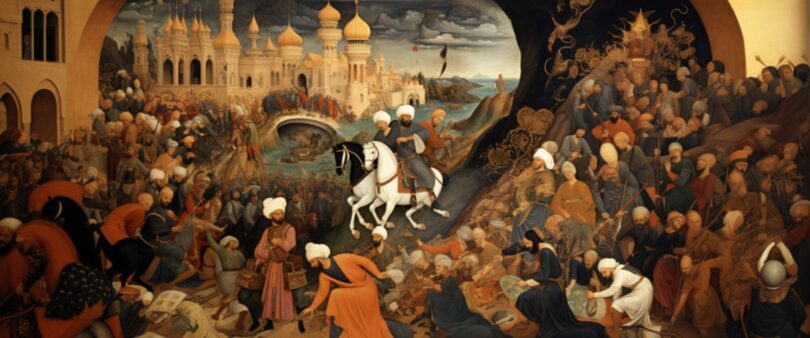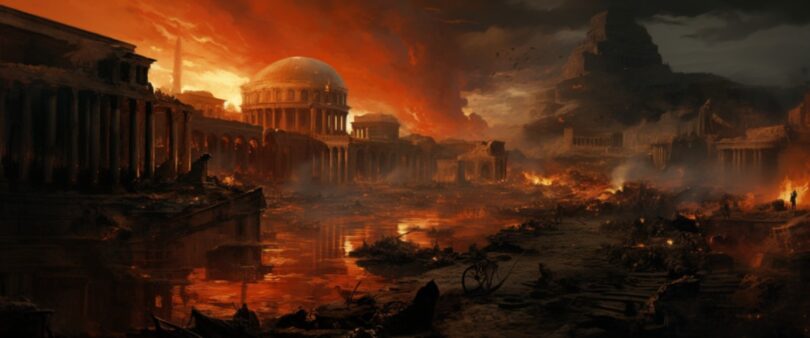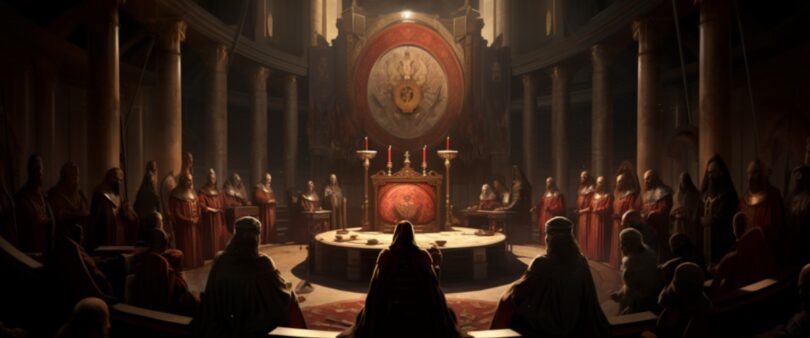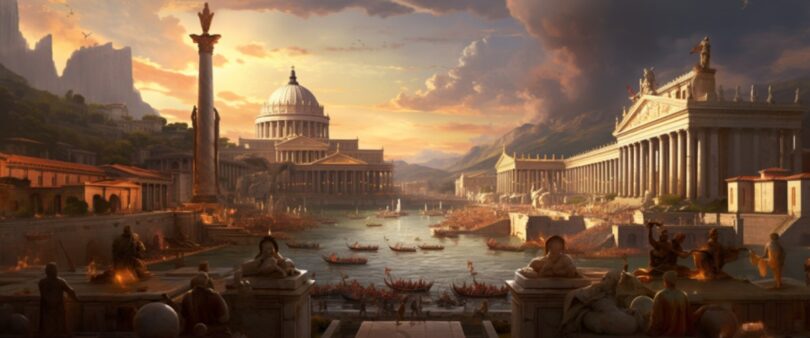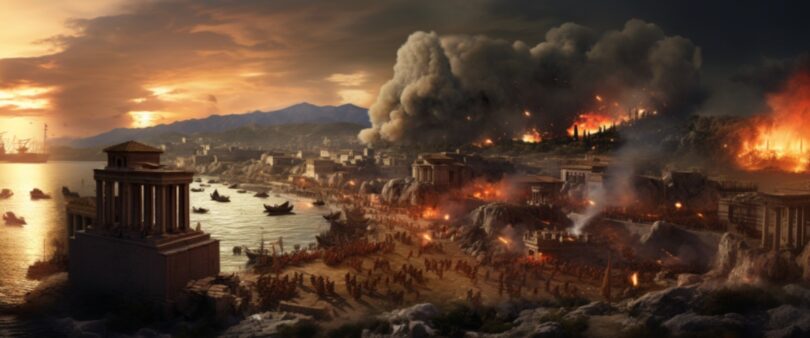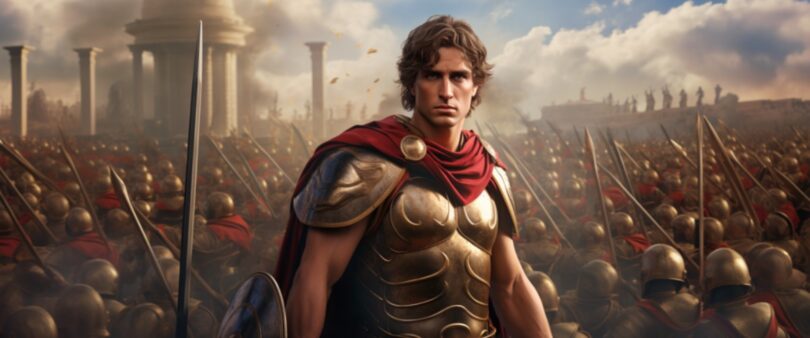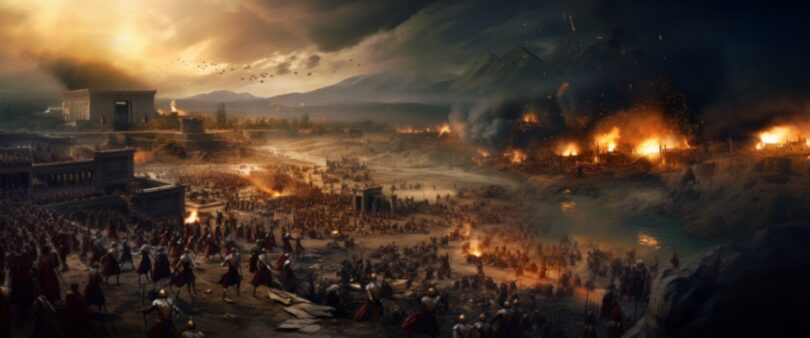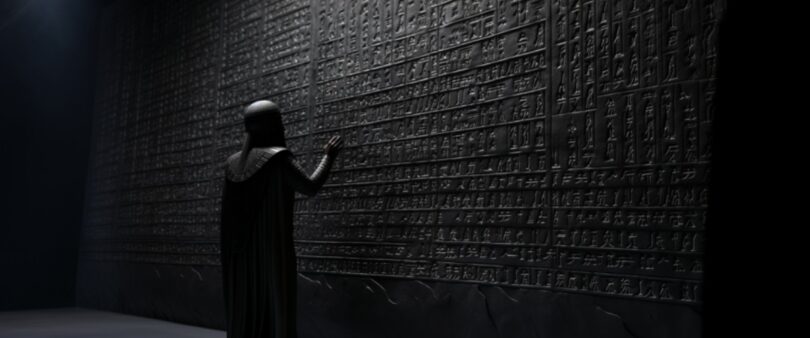A vibrant period of intellectual, cultural, and economic blossoming, the Islamic Golden Age unequivocally casts a grandiose shadow across history, knitting a tapestry rich with contributions to various fields, such as science...
Latest Posts
The Fall of the Western Roman Empire (476 AD): Marking the end of ancient history and the beginning of the Middle Ages in Europe.
The Fall of the Western Roman Empire in 476 AD, a pivotal moment in world history, symbolises a profound metamorphosis from antiquity to the medieval era, reshaping the geopolitical and cultural landscapes of Europe and the...
Council of Nicaea (325 AD): The first council of Christian bishops; it was called by Emperor Constantine I.
The Council of Nicaea, convened in 325 AD, plays a pivotal role in shaping Christian theology and doctrines, establishing uniformity and addressing numerous controversies that swirled through the early Christian community...
The Life of Jesus Christ (circa 4 BCE – 30 AD): And the subsequent spread of Christianity.
The life of Jesus Christ, believed to have unfolded approximately between 4 BCE and 30 AD, has reverberated across millennia, shaping the religious, social, and cultural landscapes of civilisations globally. Born in Bethlehem and...
The Reign of the Roman Empire (27 BCE – 476 AD): Its spread across Europe and the Mediterranean, and its eventual fall.
The Roman Empire, a colossal entity that once sprawled across three continents, left an indelible mark on the pages of history, crafting a legacy that reverberates across time and space. Background: Setting the Imperial Stage The...
The Punic Wars (264-146 BCE): A series of three wars fought between Rome and Carthage.
Spanning over a century, the Punic Wars represented pivotal conflicts that not only shaped the destinies of two dominant powers of the ancient Mediterranean – Rome and Carthage – but also significantly influenced the...
Alexander the Great’s Conquests (336-323 BCE): Spreading Hellenistic culture across three continents.
Spanning a mere decade, Alexander the Great’s conquests from 336 to 323 BCE forged one of history’s largest empires, stretching from Greece across Asia to Egypt. Despite its brief existence, his empire forged a profound impact...
The Persian Wars (499-449 BCE): A series of battles between Greece and Persia
Spanning from 499 BCE to 449 BCE, the Persian Wars epitomise a defining confrontation between the burgeoning empire of Persia and the collective city-states of Greece. These monumental conflicts altered the course of history...
Founding of the World’s Major Religions: Such as Buddhism (circa 6th century BCE), Christianity (1st century AD), and Islam (7th century AD).
The foundational establishment of the world’s predominant religions marks a pivotal juncture in human history, bringing forth a myriad of cultural, social, and political influences that have persistently permeated global...
The Code of Hammurabi (circa 1754 BCE): One of the earliest and most complete written legal codes.
Carved into a towering stele of black diorite, the Code of Hammurabi stands as one of humanity’s earliest, yet strikingly comprehensive, legal codices. Erected by the Babylonian King Hammurabi around 1754 BCE, this ancient...

